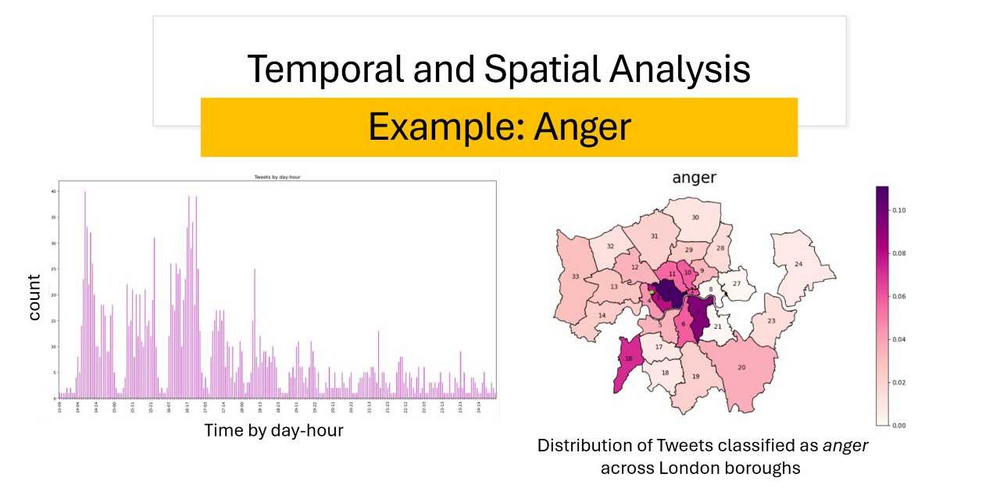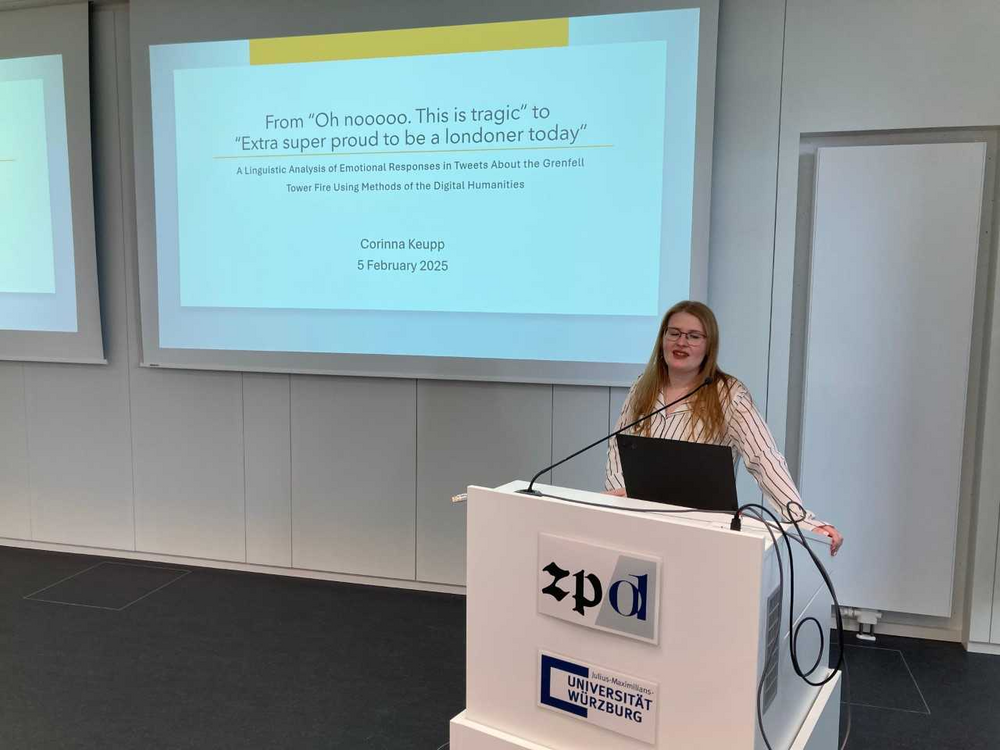“From ‘Oh nooooo!!! This is tragic!!!’ to ‘Extra super proud to be a Londoner today’ - A Linguistic Analysis of Emotional Responses in Tweets About the Grenfell Tower Fire Using Methods of the Digital Humanities”
The master's thesis “From ‘Oh nooooo!!! This is tragic!!!’ to ‘Extra super proud to be a Londoner today’ - A Linguistic Analysis of Emotional Responses in Tweets About the Grenfell Tower Fire Using Methods of the Digital Humanities” by Corinna Keupp was defended on the 5th of February 2025.
Prof. Dr. Carolin Biewer (English Linguistics) and Prof. Dr. Fotis Jannidis (Digital Humanities) were the supervisors of this interdisciplinary thesis.
The aim of this master's thesis was to analyse the linguistic expression of emotions. Eight analysed emotions were categorised according to Robert Plutchik's Wheel of Emotions (1982, 2001). Posts from the social media platform Twitter (today X) were taken as research subject. The data was collected in the context of the Grenfell Tower fire in London in 2017, which is why theories from tragedy research were also included in the analysis. The analysed data was provided by the Geolingual Studies Project of the University of Würzburg. Due to the nature of social media data, medium-specific
characteristics were taken into account and research dealing with emotions on social media was consulted additionally.
The research questions that arised from this theoretical background were:
(RQ1): Can texts be automatically classified according to emotions?
(RQ2): How are emotions expressed linguistically?
(RQ3): Are there spatial or temporal differences in the responses to an event? What patterns can be identified?
For the analysis, the data was pre-processed using digital methods, such as topic modeling. This was followed by an automatic classification of the data. Three lexicon-based models were compared with two deep learning approaches. The results were then evaluated by human analysis. The work therefore followed a quantitative and qualitative approach. The linguistic analysis was based on the work of Ad Foolen and focused mainly on his concept of the expression of emotions. Special attention was also paid to the temporal and local components of Twitter data. Moreover, tests were carried out with ChatGPT.
The results of this work show that it can be difficult for humans and machines to classify text according to emotions. The analysis suggests that there are linguistic differences between positive and negative emotions, but that a more fine-grained classification does not reveal emotion-specific features. The study confirms observations from tragedy research, as patterns in tweeting behaviour and the content of the posts can be identified.




